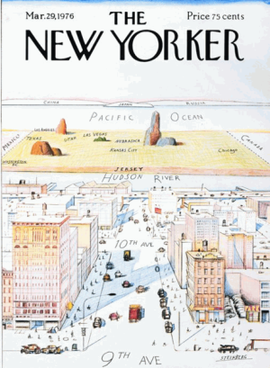History
John Chinaman minstrel songs from the 1850s presented Chinese men as effeminate and unmanly. [3] : 26 Such songs frequently revolved around John Chinaman's failed pursuit of white women. [3] : 26
American political cartoonist Thomas Nast, who often depicted John Chinaman, created a variant, John Confucius, to represent Chinese political figures.
In Nast's cartoon "A Matter of Taste", published March 15, 1879 (seen at right), John Confucius expresses disapproval of Senator James G. Blaine for his support of the Chinese Exclusion Act. Blaine is shown dining in "Kearney's Senatorial Restaurant"—a reference to Denis Kearney, the leader of a violent anti-Chinese movement in California. John Confucius asks, "How can Christians stomach such diet?"
According to the Oxford English Dictionary, the term first emerged with British sailors who, uninterested in learning how to pronounce the names of the Chinese stewards, firemen, and sailors who worked as part of their crews, came up with the generic nickname of "John". [4]

Confucianism, also known as Ruism or Ru classicism, is a system of thought and behavior originating in ancient China, and is variously described as a tradition, philosophy, religion, theory of government, or way of life. Confucianism developed from teachings of the Chinese philosopher Confucius (551–479 BCE), during a time that was later referred to as the Hundred Schools of Thought era. Confucius considered himself a transmitter of cultural values inherited from the Xia (c. 2070–1600 BCE), Shang (c. 1600–1046 BCE) and Western Zhou dynasties (c. 1046–771 BCE). Confucianism was suppressed during the Legalist and autocratic Qin dynasty (221–206 BCE), but survived. During the Han dynasty, Confucian approaches edged out the "proto-Taoist" Huang–Lao as the official ideology, while the emperors mixed both with the realist techniques of Legalism.

Confucius, born Kong Qiu (孔丘) was a Chinese philosopher of the Spring and Autumn period who is traditionally considered the paragon of Chinese sages. Confucius's teachings and philosophy underpin the East Asian culture and society, and remain influential across China and East Asia to this day. His philosophical teachings, called Confucianism, emphasized personal and governmental morality, correctness of social relationships, justice, kindness, sincerity, and a ruler's responsibilities to lead by virtue.

A cartoon is a type of visual art that is typically drawn, frequently animated, in an unrealistic or semi-realistic style. The specific meaning has evolved, but the modern usage usually refers to either: an image or series of images intended for satire, caricature, or humor; or a motion picture that relies on a sequence of illustrations for its animation. Someone who creates cartoons in the first sense is called a cartoonist, and in the second sense they are usually called an animator.

Thomas Nast was a German-born American caricaturist and editorial cartoonist often considered to be the "Father of the American Cartoon".

Samuel Langhorne Clemens, known by the pen name Mark Twain, was an American writer, humorist, essayist, entrepreneur, publisher and lecturer. He was praised as the "greatest humorist the United States has produced," with William Faulkner calling him "the father of American literature." His novels include The Adventures of Tom Sawyer (1876) and its sequel, Adventures of Huckleberry Finn (1884), with the latter often called the "Great American Novel." Twain also wrote A Connecticut Yankee in King Arthur's Court (1889) and Pudd'nhead Wilson (1894), and co-wrote The Gilded Age: A Tale of Today (1873) with Charles Dudley Warner.

A political cartoon, also known as an editorial cartoon, is a cartoon graphic with caricatures of public figures, expressing the artist's opinion. An artist who writes and draws such images is known as an editorial cartoonist. They typically combine artistic skill, hyperbole and satire in order to either question authority or draw attention to corruption, political violence and other social ills.

Harper's Weekly, A Journal of Civilization was an American political magazine based in New York City. Published by Harper & Brothers from 1857 until 1916, it featured foreign and domestic news, fiction, essays on many subjects, and humor, alongside illustrations. It carried extensive coverage of the American Civil War, including many illustrations of events from the war. During its most influential period, it was the forum of the political cartoonist Thomas Nast.

Denis Kearney (1847–1907) was a California labor leader from Ireland who was active in the late 19th century and was known for his anti-Chinese activism. Called "a demagogue of extraordinary power," he frequently gave long and caustic speeches that focused on four general topics: contempt for the press, for capitalists, for politicians, and for Chinese immigrants. A leader of the Workingmen's Party of California, he is known for ending all of his speeches with the sentence "And whatever happens, the Chinese must go"

Political satire is a type of satire that specializes in gaining entertainment from politics. Political satire can also act as a tool for advancing political arguments in conditions where political speech and dissent are banned.

Chinaman's chance is an American idiom which means that a person has little or no chance at success, synonymous with similar idioms of improbability such as a snowball's chance in hell or when pigs fly. Although the origin of the phrase is unclear, it may refer to the historical misfortunes which were suffered by Chinese-American immigrants.

View of the World from 9th Avenue is a 1976 illustration by Saul Steinberg that served as the cover of the March 29, 1976, edition of The New Yorker. The work presents the view from Manhattan of the rest of the world showing Manhattan as the center of the world. The work of art is an artistic representation of distorted self-importance relative to one's true place in the world that is a form of perception-based cartography humor.
Chinaman is an archaic term for a Chinese person.
"To the Person Sitting in Darkness" is an essay by American author Mark Twain published in the North American Review in February 1901. It is a satire exposing imperialism as revealed in the Boxer Uprising and its aftermath, the Boer War, and the Philippine–American War, expressing Twain's anti-imperialist views. It mentions the historical figures Emilio Aguinaldo, William McKinley, Joseph Chamberlain, William Scott Ament and others, and fueled the Twain–Ament indemnities controversy.
Chinaman is a term referring to a Chinese man or person, a Mainland Chinese national or, in some cases, a person native to geographical East Asia or of perceived East Asian race. While the term has no negative connotations in older dictionaries and the usage of such compound terms as Englishman, Scotsman, Frenchman, Dutchman, Irishman, and Welshman are sometimes cited as unobjectionable parallels, the term is noted as having pejorative overtones by modern dictionaries. Its derogatory connotations evolved from its use in pejorative contexts regarding Chinese people and other Asians as well as its grammatical incorrectness which resembles stereotypical characterizations of Chinese accents in English-speaking associated with discrimination. The usage of the term Chinaman is strongly discouraged by Asian American organizations.
East Asian literature is the diverse writings from the East Asian nations, China, Japan, Korea, Mongolia and Taiwan. Literature from this area emerges as a distinct and unique field of prose and poetry that embodies the cultural, social and political factors of each nation. Prose within East Asian countries reflects the rich cultural heritage from which specificities of language, form and style shape writings. Similarly, East Asian poetry exemplifies how the diverse culture and distinct environments influence East Asian Literature. Reflected through the poetic forms, images and language employed in writings. The development of East Asian literature has been subjugated to both local and international influences. The presence of Western literature and the transnational exchange reflects an interrelationship in which East Asian Literature has benefited from the communication of ideas and perspectives as well as contributed to broader literature movements.

Scrap the Japs is a 1942 American anti-Japanese cartoon with the popular character Popeye as protagonist. It follows his adventures after being sent for punishment on a ship and running into Japanese sailors.
Shelley Fisher Fishkin is the Joseph S. Atha Professor of the Humanities and a professor of English at Stanford University.
Taoist Art relates to the Taoist philosophy and narratives of Lao-tzu that promote "living simply and honestly and in harmony with nature."
Confucian coin charms are a category of Chinese and Vietnamese numismatic charms that incorporate messages from Confucian philosophy into their inscriptions. Generally these amulets resemble Chinese cash coins but contain messages of the traditions, rituals, and moral code of Confucianism, such as the idea of "filial piety" (孝) and the Confucian ideals of "righteousness" (義). During the 19th century these Confucian messages were also featured on a number of 1 mạch Vietnamese cash coins during the Nguyễn dynasty.

The George Dee Magic Washing Machine Company commissioned Uncle Sam Kicks Out The Chinaman in 1886. Published in Chicago by Shober & Carqueville Lithograph Co. the cartoon depicts patriotic symbol Uncle Sam kicking out the Chinese in order to promote The George Dee Magic Washing Machine Company's new detergent in an effort to displace Chinese laundry operators. Above the borders of the image an advertisement in the lithograph reads:
To Whom It May Concern: This is a Liquid Washing Compound, and is FULLY GUARANTEED BETTER THAN ANYTHING EVER OFFERED TO THE PUBLIC; its constant use will not injure the cloths nor turn them yellow. For sale by the Gallon, Half-Gallon and Quart. TRY A SAMPLE AND BE SURPRISED.













